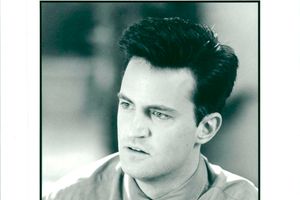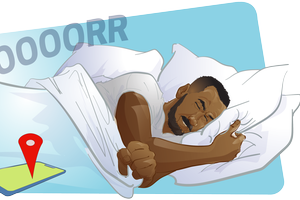
Ruth Mumbe An insurance financial services consultant who was recently voted Association of Kenya Insurance Life Agent of the Year for the second year running.
The career of an insurance agent is lucrative but involves constant hustling, and many instances of rejection. It is a job that welcomes relatively inexperienced professionals who end up making a successful career. Many Kenyans do it as a side hustle or a stepping stone to a new job.
But Ruth Mumbe Nyingi, an insurance financial services adviser, who was recently voted the Association of Kenya Insurance (AKI) life agent of the year, for the second year running, has been at it for 17 years now. She says success as an insurance agent does not come without a cost.
Lifestyle had a chat with her on the 30th floor of Britam Towers in Nairobi.
Do you think you were born a salesperson?
No, not at all. I don’t think anyone is born a salesperson (laughs hard). It was a survival job that grew into a career. I was working as an administrator at a Nairobi law firm, earning Sh8,000. I did not even have a university or college certificate. I come from a broken family where my parents had separated. I was relatively young, and when I lost my mother while in secondary school, my dad chose not to take me to college or university, so I immediately started fending for myself.
How did you grow in a career that many see as temporary?
I joined Britam about 17 years ago. Insurance sales was not a path I thought I would ever pursue. I was working in a law firm as an administrator, as I said, and three sales agents would come and hang out at the law firm after long and tedious hours of knocking on doors and facing rejection. They were from Madison Insurance, one from Sanlam (then Pan-Africa), and another one from Britam (then known as British-American). My then-boss was hardly in the office as he would travel a lot, and so this allowed me to interact with these three agents. For three months, I watched them get clients and grow their earnings. Their sales were commission-based and I watched them grow in confidence and income. As an administrator, I wasn’t getting much in terms of growth or exposure. I felt challenged, and one day I decided to try it out.
How was the transition from administration to sales?
An insurance sales job is one of the few jobs where you’ll go into an office and leave with a job. I started to work for Britam when I was about 23 years old. But it was not easy, especially because I did not have a tertiary education. My peers were well-certified, but I did not let this discourage me. Deep down, I knew I wanted to be great, but then I was not sure when or how. Actually, I did not think I had a future in the industry.
What then changed?
The wake-up call for me came when I made my first death claim. That is when it dawned on me that whatever I was doing was actually noble. It was kind of a validation for me, which propelled me to take my job even more seriously and increase my resolve to serve more clients. I didn’t want to be just another insurance agent, I wanted to make a name for myself.
You have been awarded the AKI Life Member Award and entered the Hall of Fame for being among the top three best insurance agents five times in a row. Would you say aggressiveness and persuasion are the secrets to being successful as an insurance salesperson?
For me, it is always about communicating and teaching potential clients how we can safeguard their dreams and aspirations. I took it upon myself to go online and learn from top peers across the globe about what insurance is about and its different aspects. This empowered me, and it helped me communicate why insurance is critical for anyone—it has the potential to change lives and homes forever. It is about making people understand how their other assets, such as cars and properties, can complement and complement insurance.
This enabled me to clinch the Agent of the Year title for the second consecutive time. I was also awarded the AKI Life Member Award, entering the Hall of Fame for being among the top three best insurance agents, five times in a row. These recognitions and the joy of paying bonuses to my clients give me absolute satisfaction.
Which is the best age to start buying insurance?
Between 20 and 40 years of age is the most ideal. That’s your accumulation stage and accumulation is where you're starting to think about owning assets. Also, this age is when most people have a salary or some form of stipend. No small income is too small. That’s a very important point that I would want young people to note: no salary is small, and if you cannot save from your small salary, even when you start earning more money, you’ll struggle to save.
Does that spell doom for those who are 40 and older and do not have insurance yet?
Not really, but it also means that you must be aggressive and move with speed because once you get into your 40s through your 60s, that's your consolidation stage. This is a difficult stage as one tends to have more responsibilities eating into their money. It is also the time to realise the financial mistakes that you made in your accumulation stage, with little to no room to correct them. I have worked with many clients in this age group who have then built assets to get them their desired lifestyle in retirement.
What is your advice to someone who is not sure where to start with the insurance journey?
Educate yourself about money, because success is not achieved overnight. A financial advisor will guide you based on your needs and priorities. Remember also that the plan that works for your friend will not always work for you due to varied reasons, so do not buy a particular insurance because of a network. Always seek the guidance of a qualified financial advisor.
Mother, wife, student, financial advisor…how do you balance?
If you go looking for balance, you will never find it. I am a mother to three boys, I have around 1,500 clients, each with different personal needs, I am a wife; and currently, I’m studying at the Nairobi Securities Exchange to become a fully certified financial advisor. So, how I manage is by just being present whenever I am needed. It is also about flexibility. If my client calls me in the middle of the night, I need to be able to attend to them, and even if I fail to pick up their calls because I am present as a mother at that time, I ensure that I call them back.
Parting shot?
Two things, first to the young people starting out in sales, please take your job seriously. Do not treat it as a side hustle. Dress sharply and show up! This job has the potential to provide great satisfaction and returns. Look beyond the commissions you are getting. Second, to everyone and anyone who hasn’t bought insurance yet, please look for a financial advisor and start now.










